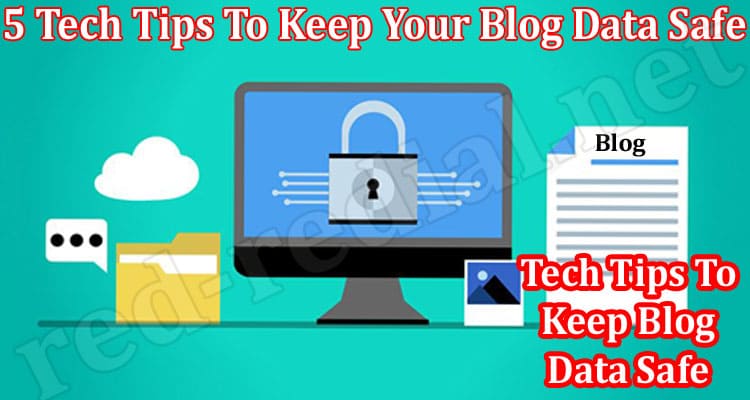5 Tech Tips To Keep Your Blog Data Safe
Hackers are always looking for the easiest way to hack into a network, which has shifted the focus from corporate networks to private users. In recent years, companies have had an increased focus on digital security, which has made it far more difficult to find weaknesses in such networks.
However, this does not mean that hackers have stopped attacking companies; they have just found new ways into the network. The biggest weakness of the web is now the individual users, which has led to your own data security becoming more important than before.
Therefore, we will take a closer look at some simple but essential steps you can take to keep your data safe online. Good safety is about established routines, so many of these measures are something you should get in place quickly. That said, you’ve probably heard many of these before, but that’s no less important today.
Our best tips for protecting data online
Some of these tips will be basic data security, but others may be more advanced. However, it is important to emphasize that computer security is about comprehensive security, and you should therefore implement as many of these as possible.
Create a strong password
Most people will be tired of hearing about this point, but this is exactly where most people fail. The number of usernames and passwords we must remember has multiplied in everyday life that is digitized at lightning speed. This leads to many people choosing the most straightforward path and using the same password in different accounts.
While this may be a convenient way for you to remember your password, it will also make a hacker’s job much easier. Therefore, you should never use the same password in two places at the same time. Another good rule is that you should update your password periodically.
Use 2-step authentication
More and more companies are offering 2-step login, which you should take advantage of wherever possible. This way, you can protect your sensitive data with an extra layer of security. In practice, you are less exposed if your password goes astray, but you should still make sure you have a strong password.
We also recommend using an application such as Google Auth, or similar instead of SMS verification. This is because hackers can obtain SMSs, while it is more difficult to gain remote access to your application.
Use a VPN
A reasonable measure that can give you good protection online is using a VPN. VPN has become a cost-effective measure in recent years that makes it far more difficult for hackers to access sensitive data. The best VPN encrypts all outgoing data from your device, making it far more difficult for hackers and third parties to detect it. A solid VPN will hide your real IP address, making it impossible for anyone to know your real IP. Type “what is my IP” in any search engine and see how much information you’re giving away. Hackers can see the same thing.
This way, you can prevent passwords and other sensitive information from going astray while strengthening your privacy. A VPN makes it more difficult for third parties to track your activity, so you do not have to leave a long trail of data online. However, a VPN is not a replacement for a strong password and antivirus program, so you should combine these for optimal protection.
Update programs frequently
One of the most common vulnerabilities hackers exploit is outdated software on your network. This is often associated with IoT, but outdated programs on PCs, tablets, and smartphones can also be a threat. The same will apply to outdated plugins, extensions, templates, and additional services when it comes to websites and blogs.
Encrypt your data
Last but not least, you should always encrypt your data where possible. In practice, this means that you lock your data with a key so that it becomes unreadable if someone should get hold of it. Both Microsoft and Apple devices offer encryption of devices. Still, you should also make sure that external hard drives, smartphones, and other devices with sensitive information use encryption as far as possible.




